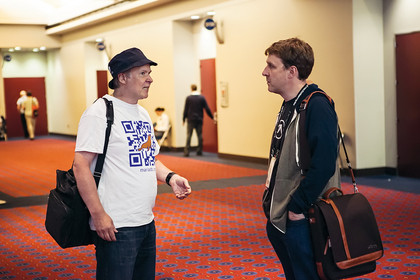How the co-creator of MySQL came to love databases
We meet Monty Widenius, the man who put the 'M' in LAMP
LXF: Why did Sun buy MySQL?
MW: Because MySQL had a user base of 17,000–20,000 customers, and some of those were the same as Sun had - Sun was different. By being able to do a full stack together with the database, Sun could access many more customers than they could do before, and MySQL could also, by having Sun as our backer, we could get into places we couldn't go into before, and Sun could go and sell hardware to them.
So they saw that with the MySQL business, which was only worth $70m a year, they could combine that with Sun's business of software and hardware, they could make a much bigger business. And I think that was kind of true, and they should have been able to do that. But the problem was to keep things too separate, so it didn't work out like that.
The other thing that I really believed could help Sun was that they did a lot of open source, but they never made money on those projects - they hoped that because we were able to make money with open source we should be able to go and teach their people to do that.
LXF: That's odd. We always thought that Sun weren't too hot with open source…
MW: They were good in sponsoring projects and getting it done, but they were not good at making money on those. They never made money on OpenOffice.org, but they did develop it for six or seven years.

LXF: But it barely changed in that time…
Get daily insight, inspiration and deals in your inbox
Sign up for breaking news, reviews, opinion, top tech deals, and more.
MW: Yeah, but that was kind of the developer groups and not Sun's fault. The problem for Sun, possibly, was that they weren't able to make money from it, so they thought that the MySQL team might be able to make money, so they would come and teach them to do that. The problem was that they (Sun) started to talk with the management, who just told Sun that: "You should do closed addon features for all your products and make money that way".
Sun said that that's not how they do open source, but they started to get bustled by that; but then me and my other people went into Sun's developer meetings and told them why management's ideas wouldn't work and they believed us, so that kind of never happened. But I wanted to help Sun to make more money with open source, and that was one of the reasons I joined Sun.
I was working with Greg Papadopoulos, their CTO, to get Sun to be more open source and involve more with the community, because instead of participating with a project that they liked, Sun would create their own project because they could do better and then they'd release it as open source. While the right way would be to get involved in the existing project, and we tried to change the mindset with them.
They kind of got that but then they got into financial troubles. Sun was a strange company in the sense that, at the top level, it was extremely good. But the next level, they were only protecting their own turf, so you had people working in one department that had to do their quota, and they knew that if they helped the other department, they could double that department's sales, but that in the process it would cost them 10% of their sales, so they were not helping each other at all.
They were basically only saving their own turf, so they could get no co-operation between their departments if it could mean a little decrease in what they were doing. This was the middle layer.